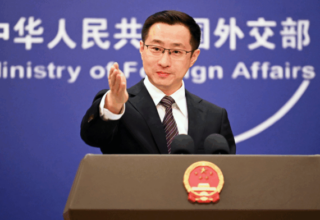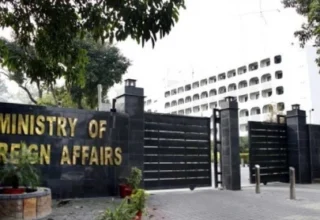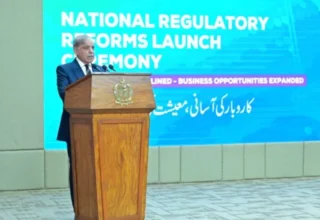
- Wang Yi tells Jaishankar ‘Indian move caused regional tensions’
- Says Indian move is violation of China’s ‘territorial sovereignty’
ISLAMABAD – China on Monday raised Kashmir issue with India as Chinese Foreign Minister Wang Yi told his Indian counterpart Subrahmanyam Jaishankar visiting Beijing that China was “highly concerned” about the current situation in Indian Occupied Kashmir (IoK) and the intensification of India-Pakistan conflicts.
The meeting, although scheduled much in advance, comes days after India annexed the Jammu and Kashmir with mainland India, revoking provisions of Article 370 that accorded J&K a special status. China had raised concerns regarding Ladakh.
It merits mention that China lays its claim on parts of Ladakh which is a part of IoK and claims its sovereignty has been challenged after India annexed IoK in violation of UN resolutions.
This is the Indian External Affairs Minister’s first visit to China after assuming office and the focus will remain on preparations for the second informal summit after last year’s Wuhan Summit that ended the deadlock of the Doklam military standoff between China and India.
Both foreign ministers would also address the India-China high level Media Forum.
Wang Yi, the State Councilor of China, also reiterated China’s position on relevant Kashmir issues of concern to all parties. There was a restricted meeting between Jaishankar and Wang Yi followed by a delegation-level meeting.
“The revision of the Indian constitution will change the status quo of the Kashmir district and cause regional tensions. China opposes any ‘unilateral actions’ that complicate the situation,” a Chinese foreign ministry handout quoted Wang Yi as telling his Indian counterpart.
While objecting to the formation of Ladakh as a Union Territory, and calling it a violation of China’s “territorial sovereignty”, the Chinese also expressed concern over the prevailing situation in the region asking India to exercise “restraint”.
Ahead of the meeting foreign minister Wang Yi said, “China and India are two big nations, we also have important responsibilities for upholding the regional peace and stability. When it comes to the recent tensions between India and Pakistan and the possible ramifications, we follow these developments very closely. We hope that India would also play a constructive role for regional peace and stability.”
Yi hoped that India and Pakistan will resolve disputes in a peaceful manner and jointly safeguard the overall situation of regional peace and stability.
He pointed out that the Indian side’s measures also challenged China’s sovereign rights and interests, contrary to the agreement between the two sides on safeguarding the border areas of the two countries and peace and security.
“The Indian side’s measures will not have any effect on the Chinese side, nor will it change the fact that China exercises sovereignty over the relevant territory and the status quo of effective jurisdiction. It is hoped that the Indian side will do more things that are conducive to promoting mutual trust, and do more things that are conducive to maintaining the border areas and peace and tranquility, and avoid unnecessary interference with the overall situation of China-India relations,” the statement said.
Jaishankar explained the position of the Indian side and said that the Indian constitutional amendment does not produce new sovereignty, does not change the India-Pakistan ceasefire line, and does not change the actual control line of the India-China border.
However, Jaishankar failed to state why India had took measures that violated 17 United Nations resolutions which ask for status quo on Kashmir until it is resolved amicably between India and Pakistan in accordance of the wishes and aspirations of the people of Kashmir through plebiscite.
“The Indian side hopes to improve relations with Pakistan and is willing to exercise restraint and maintain regional peace and stability. At the same time, the Indian side is also willing to continue to properly resolve the border issue between India and China through consultations, and will abide by the consensus reached by the two countries on maintaining peace in the border areas,” the Indian foreign minister was quoted as assuring his Chinese counterpart.
Later in the day, Jaishankar also called on Chinese Vice-President Wang Qishan at the Zhongnanhai. Explaining further, Jaishankar said that both the countries had reached a consensus in Astana two years ago that at a time when the world is more uncertain, our relationship should be a factor of stability.
“And I am very pleased today to come in the aftermath of the Wuhan summit where the consensus between our leaders on global and regional issues has expanded,” he concluded.








